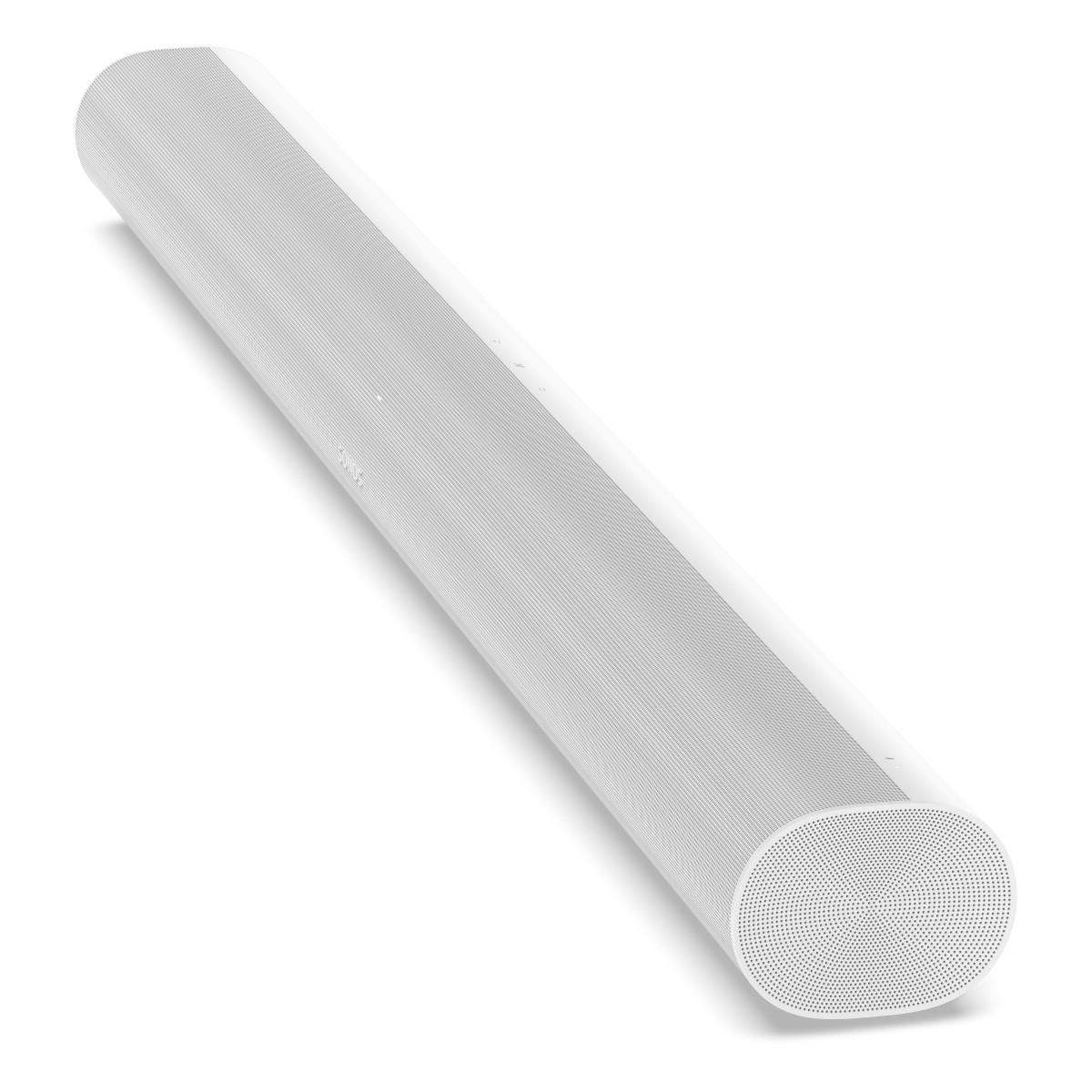
When it comes to upgrading your TV's sound in 2024, two popular premium soundbars stand out: the $564.44 Sonos Arc and the $697.99 Samsung HW-Q800D. Let's dive into what makes each unique and help you decide which better suits your needs.
Today's premium soundbars have evolved far beyond simple TV speaker replacements. They now offer immersive 3D audio, smart features, and the ability to serve as the heart of a home entertainment system. The key technologies driving this evolution are Dolby Atmos (which creates a three-dimensional soundfield by bouncing sound off your ceiling) and advanced digital signal processing that simulates surround sound from a single unit.
The Sonos Arc, released in 2020, takes a minimalist approach with its single-unit design. It uses 11 precisely tuned drivers to create virtual surround sound without a separate subwoofer. This design choice makes it incredibly elegant but means bass response isn't as powerful out of the box.
The Samsung Q800D, launched in 2022, takes a more traditional home theater approach by including a wireless subwoofer. Its 5.1.2 channel configuration (5 surround channels, 1 subwoofer, 2 height channels) delivers immediate full-range sound without requiring additional purchases.
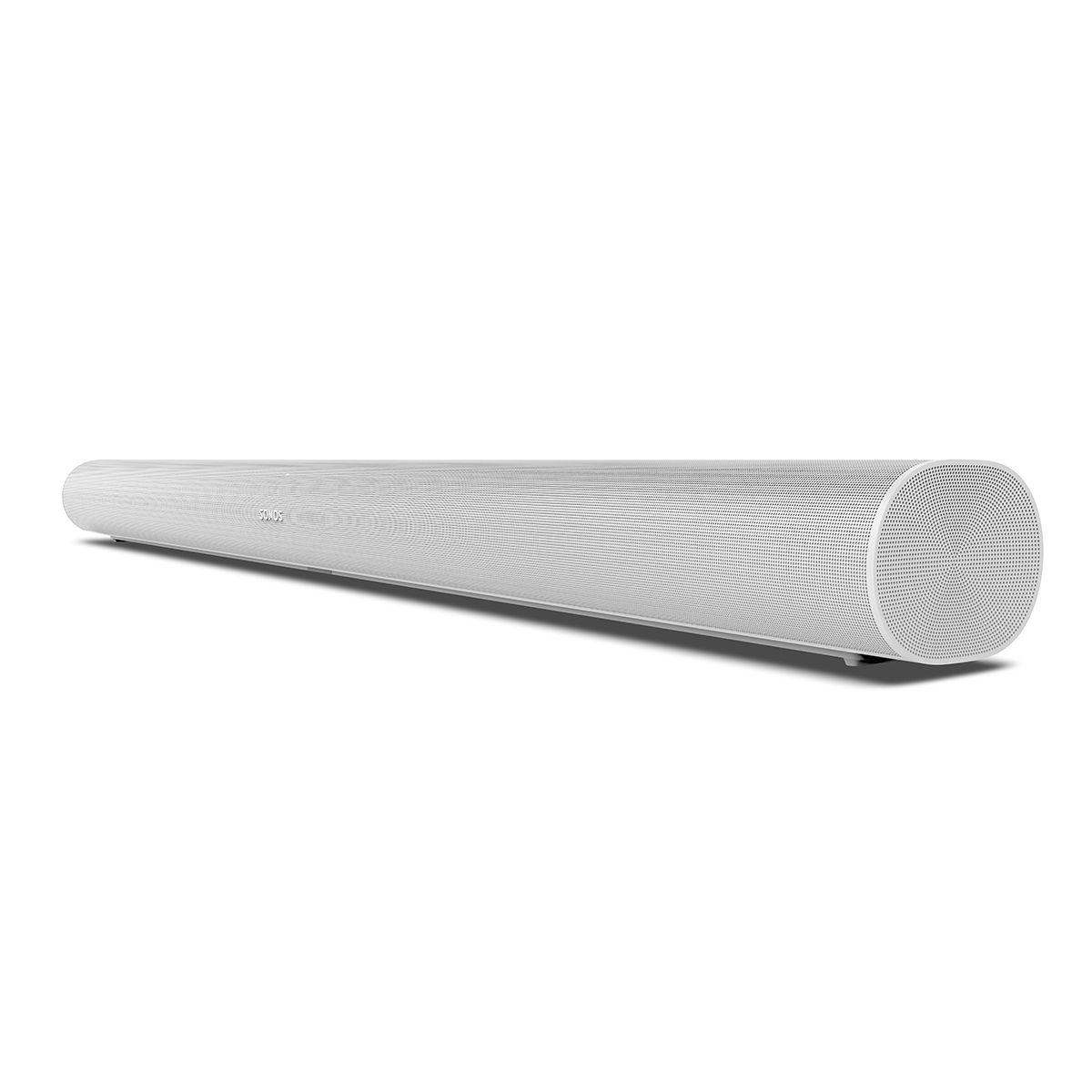
Both soundbars excel at their primary purpose - enhancing TV audio - but in different ways.
The Sonos Arc's strength lies in its precise soundstage and exceptional dialogue clarity. Its center channel configuration, combined with Sonos' speech enhancement technology, makes every word crystal clear. The upfiring speakers create convincing height effects for Dolby Atmos content, though the bass impact in explosive scenes is somewhat limited without the optional subwoofer.
The Samsung Q800D, with its included subwoofer, delivers more impactful movie experiences out of the box. Action scenes have more weight, and the low-frequency effects in movies feel more cinematic. The Q-Symphony feature, which coordinates with Samsung TV speakers, can create an even larger soundstage in compatible setups.
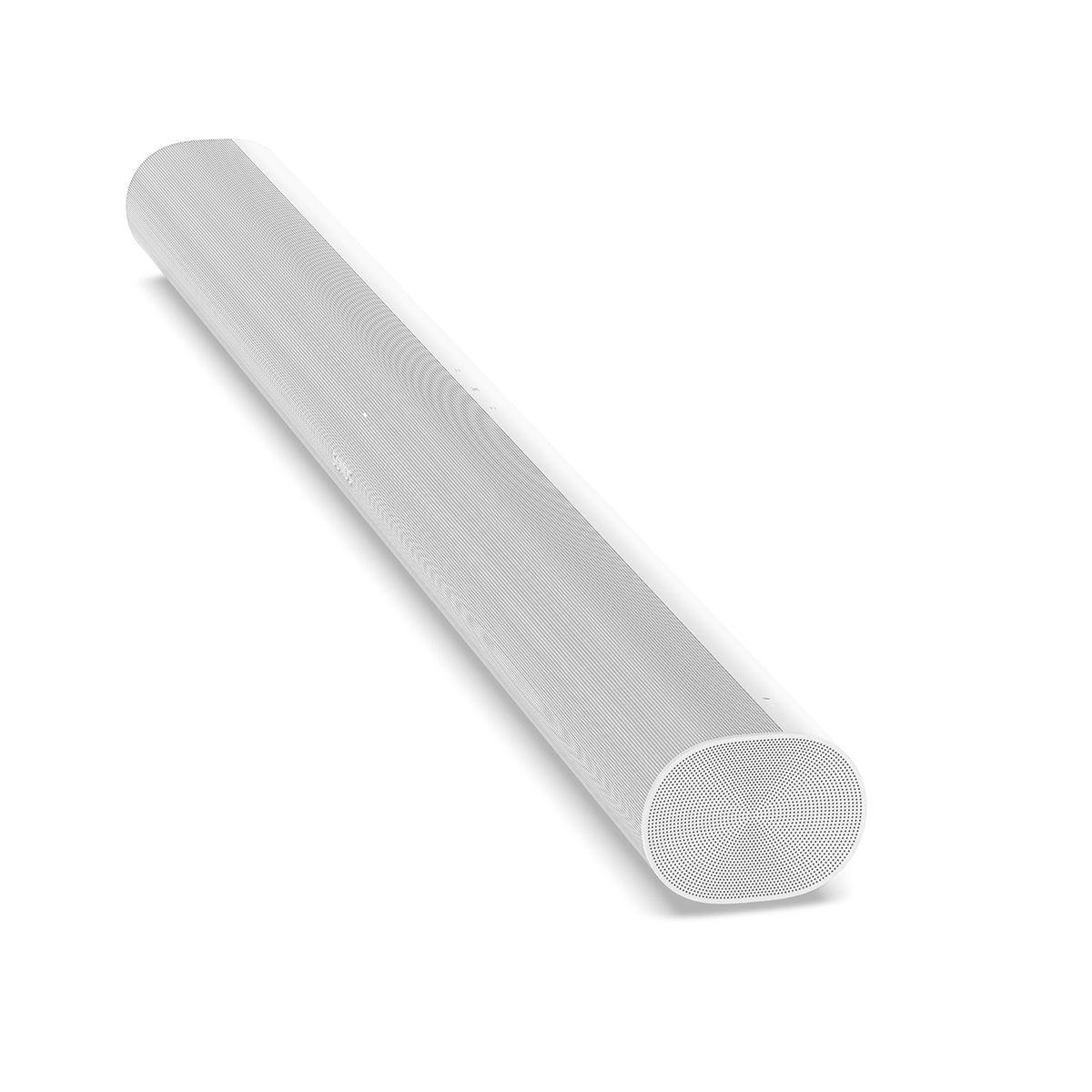
Here's where the differences become more pronounced. The Sonos Arc's heritage as a music-first company shows in its superior stereo imaging and mid-range clarity. Music sounds more natural and spatially accurate, with instruments and vocals precisely placed across the soundstage. The Arc's TruePlay room correction (iOS devices only) optimizes the sound for your specific room acoustics.
The Samsung Q800D offers a different musical experience, with its subwoofer providing deeper bass impact that works particularly well for modern genres like hip-hop and electronic music. However, its music processing can sometimes sound less natural compared to the Arc.
For gaming, both soundbars offer unique advantages. The Arc's precise positional audio helps pinpoint enemy locations in competitive games, while the Q800D's subwoofer adds impact to explosions and special effects that can make games more immersive.
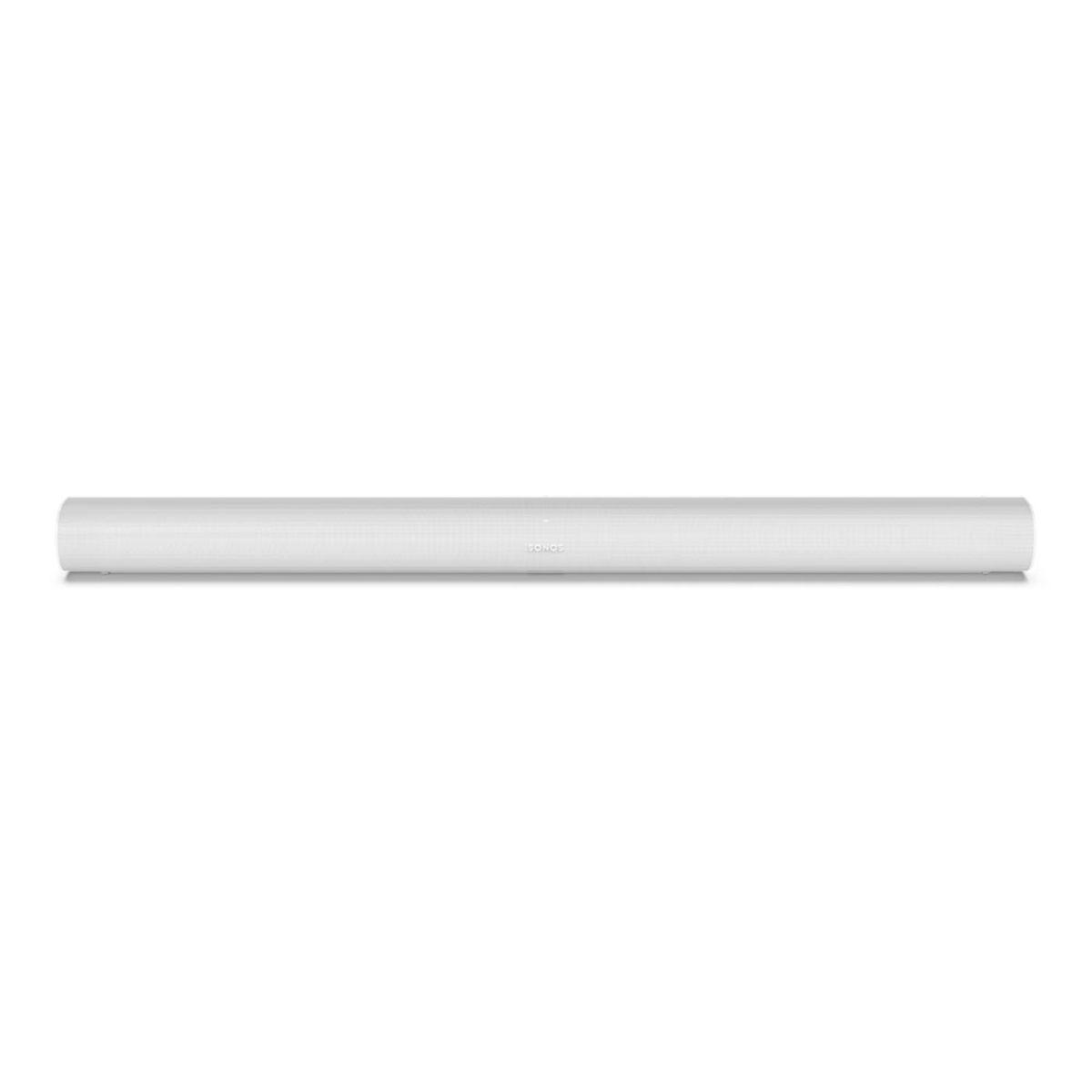
The Sonos Arc integrates seamlessly with both Amazon Alexa and Google Assistant, offering superior voice control and smart home integration. The Sonos app remains one of the best in the industry, with intuitive control over multiple rooms and services.
The Samsung Q800D focuses more on TV integration, with features like SpaceFit Sound that automatically calibrates audio based on your room's acoustics. While it offers basic voice assistant compatibility, it's not as deeply integrated as the Sonos system.
Both soundbars can be expanded into full surround systems, but with different approaches and costs:
Sonos Arc:
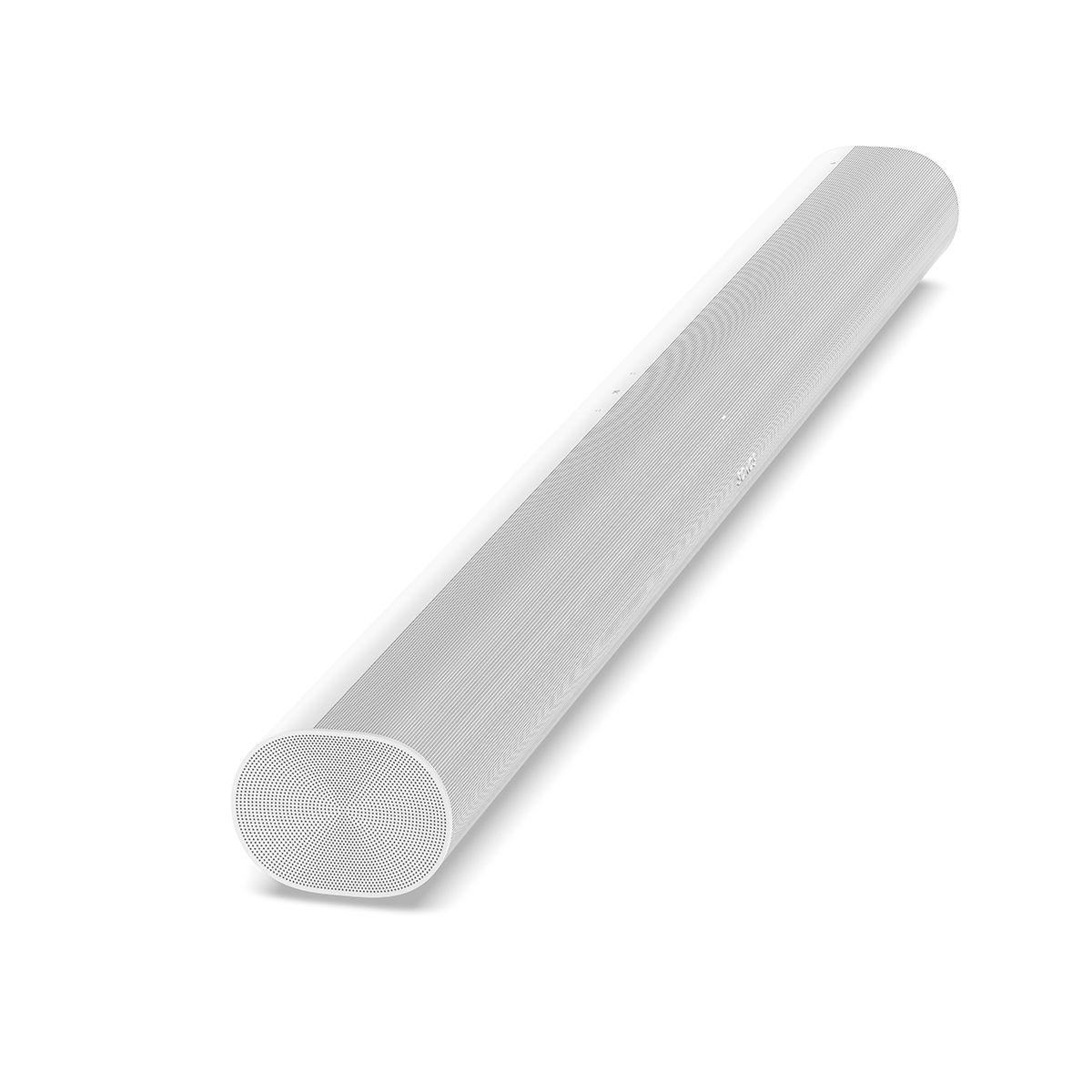
Samsung Q800D:
The Sonos Arc has received several software updates since its 2020 release, improving its room correction algorithm and adding support for additional audio formats. However, its hardware remains unchanged.
The Samsung Q800D, being newer, incorporates more recent audio processing technology and improved wireless connectivity. Its SpaceFit Sound Pro calibration is more advanced than earlier Samsung models.
When considering value, we need to look at both initial and long-term costs:
The Sonos Arc's $564.44 price point seems attractive initially, but achieving full home theater performance requires investing in the subwoofer and potentially rear speakers, pushing the total cost well above $1,700.
The Samsung Q800D's $697.99 price includes the subwoofer, making it a better initial value for those wanting immediate full-range sound. Adding rear speakers is also more affordable.
Choose the Sonos Arc if:
Choose the Samsung Q800D if:
Both soundbars represent excellent choices in their category, but they serve slightly different users. The Arc excels as a versatile, music-focused device that can grow into a home theater system, while the Q800D delivers a more traditional home theater experience right out of the box. Your choice should ultimately depend on your primary use case and whether you plan to expand the system in the future.
| Sonos Arc | Samsung HW-Q800D |
|---|---|
| Price - Initial Investment | |
| $564.44 (soundbar only) | $697.99 (includes subwoofer) |
| Audio Configuration - Determines sound coverage and immersion | |
| 5.0.2 channels, 11 drivers in single unit | 5.1.2 channels with separate wireless subwoofer |
| Power Output - Impacts maximum volume and room coverage | |
| Not specified by manufacturer | 360W total system power |
| Height Channels - Critical for Dolby Atmos performance | |
| Two upfiring drivers integrated | Two upfiring drivers with dedicated amplification |
| Subwoofer - Bass performance and impact | |
| No included sub (Optional Sonos Sub costs $749) | Included 8-inch wireless subwoofer |
| Room Correction - Optimizes sound for your space | |
| Trueplay tuning (iOS devices only) | SpaceFit Sound Pro (automatic calibration) |
| Voice Assistant Integration - Smart home control | |
| Full Alexa and Google Assistant integration | Basic Alexa compatibility |
| Connectivity Options - Flexibility for different setups | |
| HDMI eARC, Optical, Wi-Fi, AirPlay 2 | HDMI eARC, HDMI in, Optical, Wi-Fi, Bluetooth 5.2 |
| Expandability - Future system growth | |
| Expensive but excellent multi-room capabilities | More affordable rear speakers, limited ecosystem |
| Dimensions - Space considerations | |
| 45" x 3.4" x 4.5" (soundbar only) | 39.3" x 2.4" x 4.5" (bar), 8.3" x 15.9" x 16.4" (sub) |
| Audio Format Support - Content compatibility | |
| Dolby Atmos, TrueHD, Digital Plus, PCM | Dolby Atmos, DTS:X, Dolby Digital Plus |
| Special Features - Unique capabilities | |
| TruePlay, Night Sound, Speech Enhancement | Q-Symphony (Samsung TVs), Game Pro Mode, AVA |
| Multi-room Capability - Whole home audio | |
| Superior Sonos ecosystem integration | Limited to Samsung SmartThings |
The $697.99 Samsung HW-Q800D is generally better for movies due to its included subwoofer providing deeper bass for explosions and action scenes. However, the $564.44 Sonos Arc offers excellent dialogue clarity and can match performance if you add the optional Sonos Sub.
Both offer excellent sound quality, but in different ways. The Sonos Arc excels at clarity and precision, while the Samsung Q800D provides fuller sound with its included subwoofer. For pure audio quality, the Sonos Arc has a slight edge in the mid and high ranges.
The Samsung Q800D comes complete with a subwoofer, while the Sonos Arc requires separate purchases for a subwoofer ($749) or rear speakers ($458) if you want full surround sound. Both systems work well standalone but can be enhanced with additional speakers.
The Sonos Arc is generally superior for music playback, offering better stereo separation and more natural sound. The Samsung Q800D provides stronger bass but can sound less refined with music.
Yes, both soundbars work with any TV that has HDMI ARC/eARC or optical output. However, the Samsung Q800D offers additional features when paired with Samsung TVs, while the Sonos Arc works equally well with any brand.
Both are relatively simple to set up, but the Samsung Q800D is slightly easier since its subwoofer pairs automatically. The Sonos Arc requires more initial setup through the app but offers more customization options.
Yes, both the Sonos Arc and Samsung Q800D support Dolby Atmos through their upfiring speakers. The Samsung also supports DTS:X, which the Sonos doesn't.
The Sonos Arc is better for small rooms as it's a single unit solution. The Samsung Q800D requires space for both the soundbar and separate subwoofer, making it more suitable for medium to large rooms.
The Sonos Arc offers superior voice control with full Google Assistant and Alexa integration. The Samsung Q800D has basic voice assistant compatibility but isn't as comprehensive.
The Samsung Q800D offers better initial value at $697.99 since it includes a subwoofer. The Sonos Arc costs $564.44 but requires expensive add-ons for a complete system.
Both support music streaming, but the Sonos Arc offers more options with Apple AirPlay 2 and the Sonos app. The Samsung Q800D supports Bluetooth and WiFi streaming through Samsung SmartThings.
The Samsung Q800D generally performs better for gaming due to its included subwoofer providing impact for explosions and effects. The Sonos Arc offers good positional audio but lacks the same bass impact unless you add the optional subwoofer.
We've done our best to create useful and informative comparisons to help you decide what product to buy. Our research uses advanced automated methods to create this comparison and perfection is not possible - please contact us for corrections or questions. These are the sites we've researched in the creation of this article: whathifi.com - soundandvision.com - en.community.sonos.com - cnet.com - worldwidestereo.com - abt.com - creativeaudio.net - target.com - sonos.com - worldwidestereo.com - businessinsider.com - en.community.sonos.com - youtube.com - techradar.com - valueelectronics.com - samsung.com - rtings.com - samsung.com - crutchfield.com - samsung.com - samsung.com - samsung.com - shidirect.com